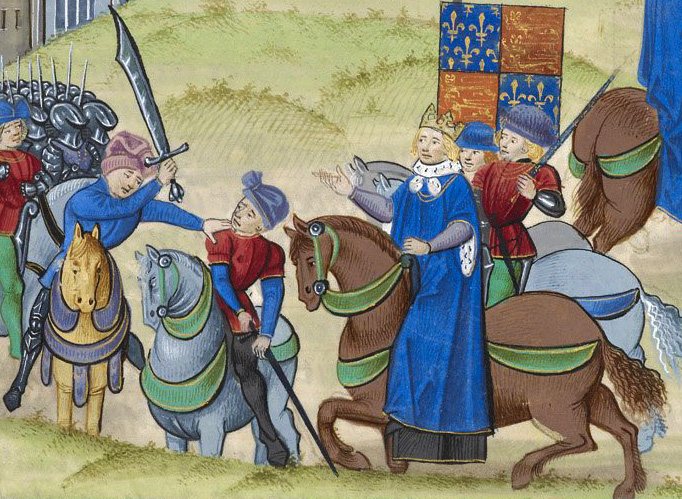It's pigeon day in NYC. So don't go poison the winged, lice ridden vermion in the park today (tomorrow is another story.)
Maybe you'd feel better if we called it squab
Did you lose something, remember St. Anthony. It's the feast day of Saint Anthony of Padua. One of the most beloved of saints, his images and statues are ubiquitous. Proclaimed a Doctor of the Church on January 16, 1946, he is sometimes called the "Evangelical Doctor." He is especially invoked for the recovery of things lost; as well as against starvation, barrenness; patron of amputees, animals, boatmen, Brazil, diocese in Beaumont, Texas, domestic animals, the elderly, expectant mothers, faith in the Blessed Sacrament, Ferrazzano, fishermen, harvests, horses, lower animals, mail, mariners, oppressed persons, Padua, paupers, Portugal, sailors, scholars, sterility, swineherds, Tigua Indians, travel hostesses, travellers, and watermen.

Today in History -
In early 1381 England imposed a new tax, which was called the "Pole Tax" because everyone got the shaft.
In the village of Maidstone, Kent, there lived a Pheasant (or Villain) whose daughter was about fourteen years old. The day the Taxman came around to collect, the Villain was away. Only his wife and daughter were home. The Taxman didn't believe that the girl was less than fifteen. She and her mother insisted that she was. At last the Taxman tore the girl's clothes off to see for himself.
After stripping her, he quickly determined that a more tactile examination would be necessary. When she resisted, the situation took a violent turn—and at that volatile moment, the girl's father came in and saw what was going on. Like any good father, he crushed the Taxman's skull and stomped on his brains.
News of the event spread. The Pheasants (Villains) of southeast England rallied to the father's support. They began Wat Tyler's Rebellion on June 13, 1381.
They made the skull-smashing father their leader because his name was Wat Tyler. Over the next few days, Wat Tyler led the Pheasants (Villains) against the government, burning the Archbishop of Salisbury at the Stake (whence the expression "Salisbury Steak").
The purpose of this rebellion was to secure a pardon for having rebelled. When Wat Tyler confronted King Richard II in Smithfield, he voiced this demand and was consequently stabbed to death, etc, by the Lord Mayor of London. Upon Wat Tyler's death, of course, it was no longer possible to have Wat Tyler's Rebellion, so everyone else went home (hence "Pheasants coming home to roost").

Many of them were later killed.
Further back in history, on June 13, 323 BC, a youthful Alexander the Great (Brad Pitt) died in Babylon (NOT Long Island). The precise cause of his death has baffled modern science for thousands of years. Many historians believe he died of hybris, also known as Syphilis or the Greek Fire. Alexander had a horse named Bucephelas, and is best known for having devoured the Gordian Nut.
June 13, 1865 –
"...And what rough beast, its hour come round at last,
Slouches towards Bethlehem to be born?"
William Butler Yeats was an Irish poet and dramatist, and one of the foremost figures in 20th century literature. He was brother of the artist Jack Butler Yeats, the son of John Butler Yeats, and along with J. M. Synge and Sean O'Casey, was one of the driving forces behind the Irish Literary Revival. Together with Lady Gregory and Edward Martyn he founded Abbey Theatre, and served as its chief playwright.
June 13, 1917 -
Fourteen German Gotha bomber planes flew over London in the first aerial bombardment in history (not counting Zeppelins); on June 13, 1944, Germany commemorated the anniversary by launching the first of its V-1 flying bombs on southern England .Only four of the Buzzbombs actually strike London, but the Germans will eventually follow that up with another 9,000. On June 13, 1990, East Germany began tearing down the Berlin Wall. The date apparently has some significance in the Teutonic psyche. Be gentle with men in lederhosen.
June 13, 1886 -
The bodies of Bavaria's mad King Ludwig II and his physician, Dr. Gudden, are discovered floating face-down in Lake Starnberg. The recently-deposed monarch who wasn't so much mad as gay, had been under house arrest ever since his uncle, Prince Luitpold von Bayern, staged a coup a few days earlier.
June 13, 1920 -
The United States Postal Service rules that children may not be sent via Parcel Post. Before that, children had been clogging the mail chutes of America.
June 13, 1934 -
Two months before becoming Fuhrer, Hitler meets Mussolini in Venice. Unfortunately, Mussolini refuses to have an interpreter and his German is not good, so neither man can understand the other. Unimpressed, Mussolini gathers a general impression of the German
as "a silly little monkey."
June 13, 1970 -
"The Long and Winding Road" becomes the Beatles' last Number 1 song.
June 13, 1971 -
Next to the White House wedding photo of President Nixon's daughter Tricia, the New York Times runs its first story on the "Pentagon Papers," a top secret DoD analysis authored by the RAND Corporation detailing every mistake and deception made during the 30-year history of the Vietnam War. Attorney General John Mitchell manages to block any further publication of the embarrassing documents, but the court order is countermanded two weeks later in a Supreme Court decision.

June 13, 1981 -
During the Trooping the Colour ceremony, a 17-year-old fires six blanks from a revolver at Queen Elizabeth II, startling her horse. Marcus Sargeant is later sentenced to five years imprisonment for the offense.
And so it goes.
No comments:
Post a Comment